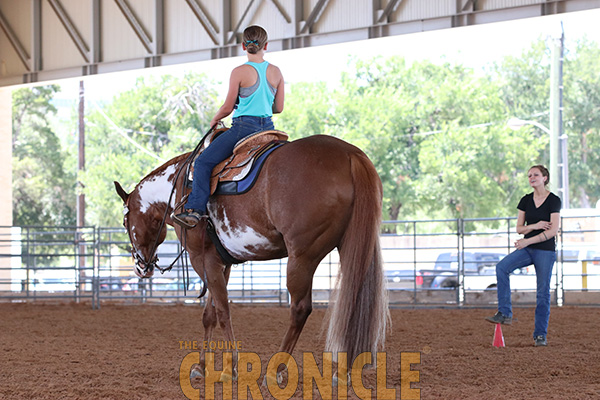The Power of Positive Clinicians
Clinics have the tremendous power to revitalize even the most jaded of equine enthusiast. There is an art form, or poetry of sorts, to being a successful equestrian clinician. Good and practiced clinicians have the ability to make every single person, whether they participate directly, or indirectly as an auditor, feel similarly like they are important, special, and valued.
Clinics provide many different tiers of support to individual equestrians. They can provide just the right amount of exposure to a higher level of breed organization, which gives exhibitors the confidence or curiosity to want to take that next step up the competition ladder. They can bring new clients to trainers. They can allow for friendships to develop between two people who may not otherwise meet. Clinics can also provide a renewed love of riding and competing for exhibitors.
How many of us have experienced that sense of excitement over working with someone that we hold in high regard? Then, after the clinic, how many have felt excitement and an empowered enjoyment for the very skills we had practiced? This is the power and positivity that clinicians bring to the equine industry, and especially the competitive equine industry.
I have participated in many, many clinics over the last 10 years. I have learned a great deal of new information, which has helped me to be a better and more organized rider and handler. I have created friendships with people who I considered to be “famous” within the competitive equine industry; but, above all, I’ve had hours and hours of fun, learning how to be a better communicator with my horse and how to hone and refine some of my skills.
Trainers who travel in order to teach others in clinics are such an important piece of the equestrian industry. Have you ever sat back and thought about what they shared with you, and how it perhaps changed your perspectives? In all the clinics I have participated in, my trainer participated and learned right alongside of me. Although, it’s extremely likely that our individual levels of learning and understanding were very different.
When trainer and students can learn alongside one another, the meaning of the learning is more powerful! As with everything else, people have strengths and weaknesses in teaching. A trainer who is willing to learn from, or allow their student to learn from someone else, is the only kind of trainer I will ever be interested in working with, because that’s someone who seeks to become a more rounded and professional equestrian trainer. You see, within certain levels of the competitive equine industry, there comes an understanding and trust between trainers. It’s not about “poaching” clients, but about sharing learning, and specifically sharing learning with clients that are seeking to learn.
Different people have different ways of teaching and learning. Individual learning styles are real as well. I’ve had several instances where my trainer has been trying to teach me something that I just couldn’t seem to grasp, only to have someone else teach me that exact thing in a way that worked for me. Clinicians bring different perspectives and examples to the table, which help increase the learning of others.
Traveling and teaching others is something that trainers enjoy doing. It allows them to meet and work with larger numbers of people and to see learn themselves. People who have made a name for themselves as clinicians, never stop looking for opportunities to learn, or for ways to improve the delivery of their instruction. If you look long term at any clinician’s style or practices, or if you’ve participated in learning with the same clinician over the span of several years, like I have, you can see the ever changing and evolutionary work that goes on. This work is done in order to enhance and create a more meaningful and positive learning experience, for us, the clinic participants.
Any clinic, no matter how awesome it is, does not replaces a full time training program and the ongoing and expert learning that goes on all year long. Please don’t mistake my meaning. I feel that stepping out of your program from time to time, in order to learn from a well organized and practiced clinician, can be a valuable tool; however, it’s the most beneficial when engaged in after speaking with your full-time trainer and when you have a goal or purpose of the learning. It’s an awful mistake to go to a clinic and have the result compromise the year-long progress your horse has made, because you didn’t understand the process your trainer was taking.











